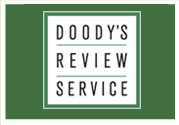|
Editorial note: This article is based on a preprint submission to SocArXiv available here.
Just as there are healthcare inequities that perpetuate illness and premature mortality, health information inequities can lead to inaccurate beliefs, wasted income, and behavioral choices with negative health consequences. Medically underserved areas around the globe have limited ways to receive accurate and timely health information, and misinformation about health has become prevalent.
The Rowan-Virtua School of Osteopathic Medicine (SOM) has operated the New Jersey Area Health Education Center (NJ AHEC) program for the past 40 years. NJ AHEC includes three centers in medically underserveed areas of southern New Jersey and a network of over 80 community-based organizations that provide education and training, with the goal of increasing the diversity of health professionals in underserved areas.
Project Health-Info-Equity was conceived to provide learning activities to AHEC Scholar students, in turn developing health information literacy in future clinicians that will also educate their primary care patients about health misinformation. Besides creating a curriculum, the project provided National Library of Medicine (NLM) health information printed materials for students.
In the fall of 2020, during the first year of the ongoing COVID-19 pandemic, librarians observed the rising tide of COVID-19 misinformation in social media, commercialized quack therapies, and distorting conjecture of how mRNA vaccines are neither safe nor effective. Librarians sought to partner with the AHEC students to combat this misinformation. One readily available source of financial support was the National Library of Medicine Network. Because of the disruptions during the COVID-19 pandemic, in the fall of 2020 there were still NLM sub-contracted grant funds available. The Health Sciences Library Director reached out to the NLM’s Regional Medical Library (RML) at the University of Pittsburgh. The RML staff suggested there was education outreach funding available for a formal grant proposal.
The Health Sciences Library staff then reached out to the Rowan NJ AHEC Program Director, describing health information inequities and the potential of teaching AHEC student scholars information skills to critically evaluate health information online. The AHEC Program Director thanked the librarians for their initiative and committed NJ AHEC to be a partner in the proposal. A budget was created, and the requested target funding covered the development and distribution of learning materials. The university institutional review board (IRB) provided approval and a waiver from monitoring, and the Pittsburgh RML approved the application.
Based on design and production estimates, library staff placed an order for water-proof pocket cards that would be mailed to the student participants. Health information evaluation models exist on various health information web sites, including MedlinePlus, the National Center for Complementary and Integrative Health (NCCIH), and the World Health Organization (WHO). The laminated pocket card was designed to introduce quality sources of health information and information evaluation principles. The RML also provided NLM-created non-laminated pocket cards on MedlinePlus and handouts in both English and Spanish languages.

Figure 1: Laminated Pocket Card on Quality Resources You Can Trust
Project Health-Info-Equity provided AHEC Scholars with classroom learning activities and take-away outreach consumer health materials to help understand what health misinformation is and why health information literacy exists. Students received information evaluation skills, as well as the rubric for assessing the credibility of health web sites, which can be applied in educating future primary care patients about health misinformation.

Figure 2: Three Featured Sources of Quality Health Information
AHEC Scholar workshop dates and times were scheduled. The first session would introduce health information literacy and the ability to evaluate online health information, along with trusted sites for unbiased health information. There would be a homework assignment to use the provided health information evaluation tool to select and evaluate a health information site of their choice. The second workshop session would review and re-enforce the evaluation and source content, then present an interactive game to assess student competence with the material. Anonymous pre- and post-workshop feedback was solicited using an online form. Unfortunately, only a minimal number of responses were received. The minimal response was quantitatively insignificant, compared to the two cohorts of 88 students that attended the online workshops. A Springshare LibGuide was created to distribute the Health-Info-Equity project materials.

Figure 3: Screenshot of Health-Info-Equity LibGuide
The project had two main outcomes for the library. First, the library staff formed a partnership that continues with the AHEC program at Rowan. Second, librarians created a health information literacy curriculum for future health professionals to think critically about the health information they encounter online and in other media content. 88 future health professionals learned the importance of assessing health information. Another outcome of the Health-Info-Equity project was to shift student thinking from solving or treating patient problems to thinking about the preventative benefits of accurate and timely health information.
Additional Resources
-
“Health-Info-Equity: Delivering Accurate Information in Southern New Jersey AHEC Communities | NNLM.” n.d. https://www.nnlm.gov/funding/funded/health-info-equity-delivering-accurate-information-southern-new-jersey-ahec.
-
“MedlinePlus - Health Information from the National Library of Medicine.” 2024. Medline Plus. https://medlineplus.gov/.
-
“National Center for Complementary and Integrative Health.” 2024. NCCIH. https://www.nccih.nih.gov/.
-
“Rowan-Virtua SOM | School of Osteopathic Medicine | The NJ AHEC Program.” n.d. https://som.rowan.edu/oursom/community/ahec/.
DCT Featured Article – April 9, 2024
|
